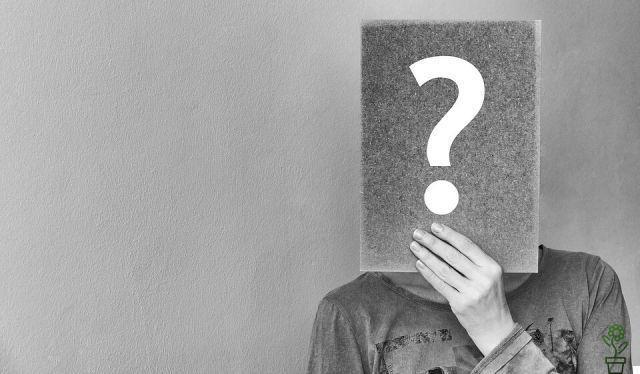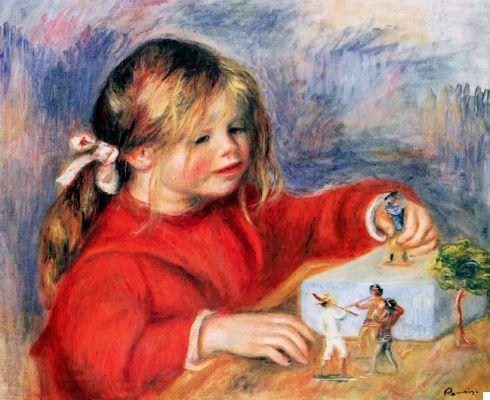
Eastern culture has accepted for centuries that life is change, that change is inherent in life and is its only constant. Western culture, on the other hand, prefers to focus on what is fixed, static and immutable because it offers it solid support, the sense of security it needs to face a world that seems too uncertain and chaotic. So we become obsessed with safety and, therefore, we cling to anything that seems stable, even if it isn't.
Perhaps there is no better example of the differences between the two ways of understanding change than contracts. Boye Lafayette, an American journalist with a deep knowledge of Eastern cultures, said that, while in Western contracts we try to tie all loose ends because we assume that, once signed, they are absolute; until relatively recently in Japanese culture, contracts were open and subject to change based on circumstances. Any of the interested parties could introduce such changes without implying the automatic termination of the contract.
Our fixed Western mentality has difficulty understanding such contracts, which even scare us. However, when Westerners introduced their model contract to Japan, the Japanese believed that we Westerners had so little ethics that we couldn't trust anyone, which is why we needed to sign those contracts. They also thought that Western contracts were ridiculous and irrational because it is impossible for the terms of either party to remain unchanged for long periods of time.
Therefore, in their agreements they usually include a clause governed by the “jijo henko” principle, which would indicate “changing circumstances” and imply that it is possible to renegotiate the contract if conditions change. Letting the concept of henko into our lives will allow us to take a quantum leap in our personal development.
Henko: psychological meaning
In Japanese, the word henkō is composed of the Kanji 変 Hen, which means "change" and 光 Kō, which means "variable or with an unusual light". In fact, more than a word, henkō is a concept that refers to changes in perception, in the way we see things. They can be small changes, but also deep inner and revealing transformations that help us grow.
Henko's concept not only tells us that everything changes constantly, but it shows us that our perceptions also change. And sometimes an inner change is all we need to change everything.
From rigid identity to constantly changing identity
Having a fixed vision of our identity does not help us to evolve, rather it condemns us to a vicious circle in which we constantly repeat the same mistakes. The more we stick to ideas like “I'm like this, I can't change”, “it's my character” or “I was born like this”, the less space we will leave for development.
It is obvious that we are all characterized by a type of nervous system and a life history that have helped shape the person we are, but letting ourselves be conditioned by these factors assuming they are immutable is to deny ourselves the opportunity to embrace liberating change. Clinging to a fixed mindset that supports an even more immutable identity harms only one person: ourselves.
We do not have a fixed image of our physical identity because we are aware of the changes that occur in our body over the years, but our psychic identity does not have the same fate. Rigid Western thinking has helped us to make our personal identity a "hard core" which, according to a study conducted at the universities of Arizona and Duke, is made up of our moral values and emotional autobiographical memories.
The problem is when we take those values as immutable truths that we can rely on to differentiate the "good" and the "bad", as if they were absolute terms, because that vision prevents us from understanding and dealing with the complexity of life. The problem begins when we take those autobiographical memories as a tombstone or an excuse to stick to the self we know.
This attitude leads us to cling to an immutable "I" that looks more to the past than to the future. Such an "I" evolves little and is less willing to change because it is unable to change the way it looks at things and at itself. Such an "I" remains anchored in the past as the surrounding world continues to change and the gap between its perception and reality widens. And the result of this combination of forces is not stillness but involution.
The necessary change
Sometimes we feel truly dizzy in the face of the unknown, in the face of all that we cannot foresee and that is beyond our control. With this feeling, we retreat into the known, take a step back to look for holds. So we close ourselves in resistance to change and deny the necessary transformation. This reaction is understandable, but not beneficial.
The henko, on the other hand, encourages us to constantly change our perspective, to assume that the self that we were is not necessarily the me that we will be. And all this without feeling anxious because evolution is an intrinsic part of life.
These changes in the internal perspective tend to generate such a radical transformation that we cease to be the same, we evolve and find it almost impossible to go back. They are inflection points in our life history where we suddenly mature or reach a higher level of wisdom.
Being able to embrace such changes is essential if we are to transform, evolve and expand our level of consciousness. A henko is, therefore, an exercise in courage through which we face ourselves to change the way we see and understand things, being able to overcome the mental patterns we have built over the years.

























